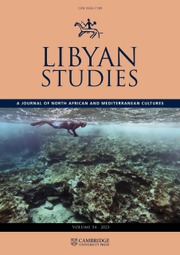Article contents
Italian archaeologists in colonial Tripolitania
Published online by Cambridge University Press: 24 April 2014
Abstract
This is a contribution to a reassessment of colonial archaeology in Libya, based on the academic and political/ ideological portraits of the archaeologists serving in the Tripolitanian and (from 1936) Libyan Soprintendenza. Italian colonial archaeologists were, often deliberately, instruments of political strategy. They searched for traces of Rome in the nationalistic context of the Libyan War, and sought to reconstruct an idealised vision of the Roman cities during the Fascist Ventennio. The essential continuity between nationalist archaeology of the Liberal period (1910–1922), characterised by the central idea of the civilising force of Rome as a tool of colonial expansion, and the Fascist archaeology of 1922–1943, in which the integration of archaeology with political aims touched on the extreme, sometimes with grotesque results, will be stressed and a chronological overview presented. Negative judgment should be nuanced by placing the colonial archaeology in its historical context, analysing its structure, remembering that its methodological backwardness was shared by metropolitan archaeology, noting the high quality of the restoration work and finally by comparing Italian fieldwork with that of other European excavations in North African or Near Eastern protectorates and colonies. It is not a case of presenting a revisionist interpretation, but of approaching the subject without prejudice.
- Type
- Articles
- Information
- Copyright
- Copyright © Society for Libyan Studies 2012
References
- 1
- Cited by


